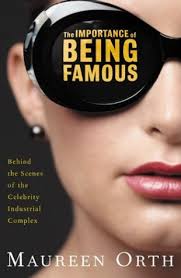Grassy Knoll, anyone? Maybe not. It makes sense. It makes a lot of sense.
Arianna Huffington- H.Post
DELIVERING NEWS AND OPINION SINCE MAY 9, 2005
July 30, 2005
07.27.2005 Arianna Huffington
Judy Miller: Do We Want To Know Everything or Don't We?
Not everyone in the Times building is on the same page when it comes to Judy Miller. The official story the paper is sticking to is that Miller is a heroic martyr, sacrificing her freedom in the name of journalistic integrity.
But a very different scenario is being floated in the halls. Here it is: It's July 6, 2003, and Joe Wilson's now famous op-ed piece appears in the Times, raising the idea that the Bush administration has "manipulate[d]" and "twisted" intelligence "to exaggerate the Iraqi threat." Miller, who has been pushing this manipulated, twisted, and exaggerated intel in the Times for months, goes ballistic. Someone is using the pages of her own paper to call into question the justification for the war -- and, indirectly, much of her reporting. The idea that intelligence was being fixed goes to the heart of Miller's credibility. So she calls her friends in the intelligence community and asks, Who is this guy? She finds out he's married to a CIA agent. She then passes on the info about Mrs. Wilson to Scooter Libby (Newsday has identified a meeting Miller had on July 8 in Washington with an "unnamed government official"). Maybe Miller tells Rove too -- or Libby does. The White House hatchet men turn around and tell Novak and Cooper.
The story gets out.
This is why Miller doesn't want to reveal her "source" at the White House -- because she was the source. Sure, she first got the info from someone else, and the odds are she wasn't the only one who clued in Libby and/or Rove (the State Dept. memo likely played a role too)… but, in this scenario, Miller certainly wasn't an innocent writer caught up in the whirl of history. She had a starring role in it. This also explains why Miller never wrote a story about Plame, because her goal wasn't to write a story, but to get out the story that cast doubts on Wilson's motives.
Which Novak did.
This version of events has divided the Times into two camps: those who want to learn everything about this story, and those who want to learn everything as long as it doesn't downgrade the heroic status of their "colleague" Judy Miller. And then there are the schizophrenics. Frank Rich is spending his summer in the second camp, while at the same time writing some of the most powerful and brilliant stuff about the scandal: "This case is about Iraq, not Niger. The real victims are the American people, not the Wilsons. The real culprit… is not Mr. Rove but the gang that sent American sons and daughters to war on trumped up grounds… That's why the stakes are so high: this scandal is about the unmasking of an ill-conceived war."
But this unmasking -- if it is to be complete -- has to include Judy Miller and the part she played in the mess in Iraq. Of course, the division over Miller is nothing new… it predates her transformation into media martyr by many months. For an early look at this rift, check out Howard Kurtz' May 2003 reporting on the way Miller ferociously fought to keep Ahmad Chalabi, her top source on WMD, to herself and the anger it caused at the paper. And also the paper's extraordinary mea culpa from May 2004, in which its editors admitted that the Times' reporting on Iraq "was not as rigorous as it should have been" -- [More]
###
-











No comments:
Post a Comment